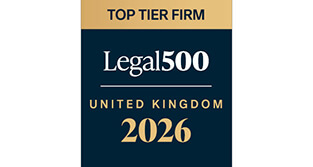Market authorisations for food – One step forward, two steps back?
1st July 2025
“With the Food Standards Agency’s and Food Standards Scotland’s plans to modernise the market authorisation process for food and animal feed on hold due to the announcement of negotiation of a new sanitary and phytosanitary agreement, it’s important to position your business for a variety of possible changes.”


What’s happening?
The market authorisation process is the process by which regulated food and animal feed products, such as novel foods, genetically modified foods, and certain food and and feed additives are authorised for use in England, Wales and Scotland.
The Food Standards Agency (FSA) and Food Standards Scotland (FSS) are working to modernise this process.
Progress has already been made, with reform of how authorisations are granted taking effect earlier this year, and further changes are currently being looked into.
Modernising and streamling the process holds the promise of quicker and cheaper routes to market for new food and feed products, which should help to promote innovation and economic growth in line with the Government’s wider growth agenda.
How does the market authorisation process work at the moment?
The market authorisation process involves two main stages:
- Risk assessment stage – FSA and FSS specialists assess new food and feed products for safety and then provide advice to ministers in Westminster, the Welsh and Scottish governments as to whether those products should be authorised for use in their markets
- Risk management stage. Ministers in each of these governments decide whether to authorise the products for use and, if so, upon what conditions
The authorisation itself used to take the form of secondary legislation but since 1 April 2025, as a first step in the FSAs and FSSs modernisation efforts, legislation is no longer required. Instead, the authorisation takes the form of publication on a government register. This brings the process for food and feed more into line with the process of authorisation of other regulated products such as veterinary medicines and chemicals.
How might the market authorisation process change?
FSA and FSS hope to make further changes. These include:
- Reviewing the decision-making process – to include empowering the FSA and FSS to authorise new products without needing a ministerial decision (but with a ‘call-in’ mechanism so ministers retain power to make authorisations). In essence, this would mean that FSA and FSS would carry out both the risk assessment and risk management stages of market authorisations.
- Clarifying roles and responsibilities in legislation – to help streamline some of the administration, for instance to remove the need for ministerial input at stages which are routine in nature (such as rejecting an application because of an incomplete dossier).
- Use of other regulators’ risk assessments – for instance to use science based assessments performed in other countries where these have been carried out to recognised international standards. The FSA suggests that this could reduce the average time for an application to progress through the system from around 6 months to 6 weeks.
- Use of European Union Reference Laboratory (EURL) reports for genetically modified food and for feed additives – this would allow for sensible (re)use of reports known to have been produced to high standards.
- If practicable, streamlining certain common authorisation provisions and creating a common process for authorisation of feed for particular nutritional purposes (known as PARNUTs) and extraction solvents.
What happens next?
The ability of the FSA and FSS to make progress with the planned modernisation is now in doubt.
This is because of the announcement at the UK–EU Summit on 19 May 2025 that the UK and EU will work towards agreeing a new sanitary and phytosanitary (SPS) agreement. An SPS agreement may involve the UK handing back responsibility for certain market authorisations to the EU or having to mirror the EU authorisation process such that material change in the nature or stages in the process become impossible, unless agreed at EU level.
In light of these difficulties and uncertainties, it appears that the FSA and FSS will not, at this point, push forward with any formal consultation on further modernisation until the impact of the SPS agreement is clearer. The hope is that, by the Autumn, the position might be sufficiently clear such that the risk of a consultation asking the wrong questions, or being based upon incorrect assumptions is avoided.
Our thoughts
While the prospect of freer trade with the EU by way of a new SPS agreement is welcome, one consequence of it is almost certainly going to be closer alignment with EU processes.
The UK’s ability to move towards more tailored, agile authorisations at GB level seems likley to be curtailed (if not extinguished altogther). And, so far as the possibility of reform of the EU authorisation process is concerned, the UK seems likely to become a rule-taker and therefore unable to promote reform from any position of influence.
A pause in any further changes to the market authorisation process is therefore sensible and avoids burdening industry, consumer groups and other stakeholders with a consultation which risks creating confusion and, perhaps, mistaken expectations about what is now possible by way of reform.
If an SPS agreement between the UK and EU is reached, primary legislation is likely to be required to give it effect in the UK. We can expect much discussion about the implications of that legislation – both for the market authorisation process and more generally for the future direction of food and feed law in the UK.
How we can support you
The team at Walker Morris would be pleased to help you navigate the current market authorisations process for food and animal feed, as well as helping you to position yourselves well for changes which might follow in the near future. Do get in touch for a confidential and without obligation discussion at any time.









